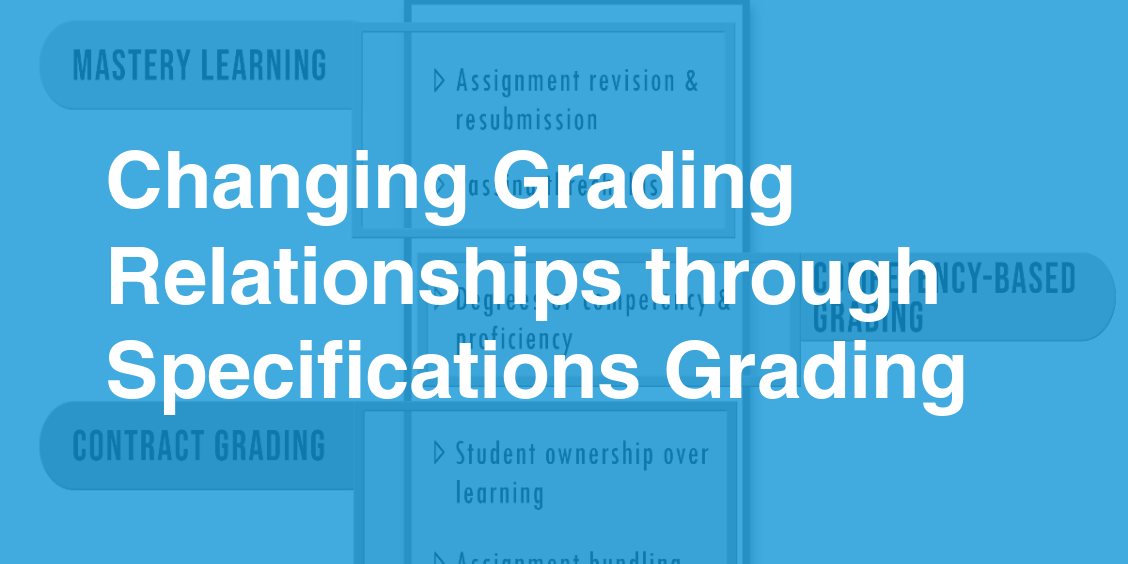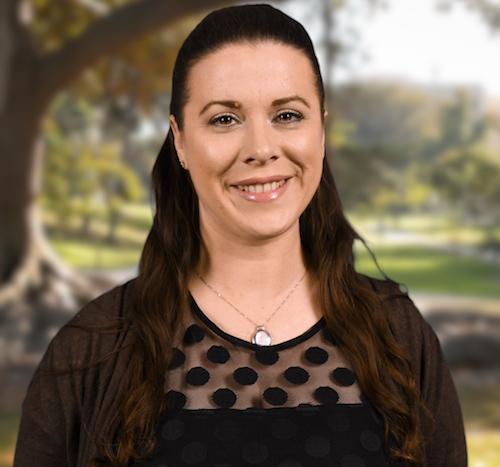UC Online
Specifications Grading for STEM
UC Online Webinar Series: Innovations in Online Teaching and Learning

This webinar will discuss the origins of specifications grading, its potential to reduce grading inequities, and several examples of its use across STEM disciplines.
Assessing student work to assign final course letter grades has depended traditionally on points-based grading systems. This approach to grading in the college classroom is not ideal as it places emphasis on the extrinsic motivational factor of accumulating points rather than the intrinsic motivation of learning and meeting course learning outcomes. Specifications grading represents a new grading system that moves away from a reliance on points and has the potential to make positive changes in student learning.
Questions not answered during the webinar
- What platform do you use to keep track of grades and tokens? How complex is it to manage specs grades in Canvas (which seems to be built for points grading)?
I use a combination of a Google Form that is highly structured and a "dummy" assignment in Canvas. I added a slide at the end of the presentation that demonstrates our process visually. Students submit token requests through the Google form. One of my head TAs or I check the spreadsheet generated by the form and subtract tokens from the student's "assignment" in Canvas to update the student's token balance. We leave a comment in Canvas to show what the change was for so that everyone on the team (me, head TA, TA, student) knows what it was. We are currently working with some M.S. students in CS to create an app that we can use to connect between the form and Canvas, but for now, it's manual. That's not ideal, but it's still easier for me to handle tokens manually than all the emails asking for a due date extension, etc. - Can you please talk more about assignments to earn tokens?
I added a slide at the end of the presentation with some examples. Currently my students can earn tokens for- Completing the "How I Earned an A" assignment at the beginning of the course. This is a letter they write as their future self writing to their past self about the concrete steps they took to earn an A in the course.
- Any lab section that goes 4 consecutive weeks without any waste disposal or safety issues in lab earns a bonus token for every student in that section.
- Completing a mid-quarter grade check, in which students compare their work against the requirements for their target letter grade and create a concrete plan for completing the remaining requirements, earns a bonus token.
- Students can earn one bonus token by completing a specific number of surveys in the course. Surveys include mid-course feedback surveys I send out, department-administered course evaluations, and any surveys I'm using for research purposes. I set the number of surveys needed so that students can skip the research surveys and still earn the bonus (essential for IRB approval).
- Any information/advice about getting Gradescope “scores” into the Learning Mastery gradebook in Canvas?
We have tried this a few times and failed, BUT...we think we almost have it figured out. Contact me and I'll put you in touch with people on our campus working on this. We can do it by manually downloading things from Gradescope, manipulating csv files with few scripts (built in R, because that's the language a head TA and I both know) and manually uploading to Canvas. However, based on that we are working with a team of M.S. Computer Science students to make this more automated. The current holdup is how Gradescope works. - Where can we get in these day-long workshops?
Kate McKnelly, Will Howitz, and I built a full program (spanned a few months) for the Teaching Experiment Academy. That program has ended, but the materials may be available. Kate, Will, and I also built a full day workshop for the 2022 Biennial Conference on Chemical Education to get people started on building their specs grading system. We would be happy to hold workshops at university campuses or other conferences. Feel free to reach out to us about it through me.
Resources
- Is Specifications Grading Right for Me?: A Readiness Assessment to Help Instructors Decide, Streifer, A. C.; Palmer, M. S.
- Mini Seminars - Specifications Grading
Questions?
Please contact Renee Link
Guest Speaker

Professor of Teaching, UC Irvine
Renée Link is a Professor of Teaching in the UCI Department of Chemistry who designs, manages and teaches the organic chemistry lab courses taken by over 1,000 UCI students each year. Her scholarly activity focuses on using active learning in large courses to create a more inclusive and equitable learning experience for students from all backgrounds. As a community college transfer student and first generation college graduate, Dr. Link serves as a mentor for UCI graduate and undergraduate students navigating the complex world of academia.
Professor Link is originally from Florida, but grew up in many parts of the U.S. She moved to San Diego for college, where she attended Southwestern College before transferring to and earning her B.S. in Chemistry UC San Diego. Thanks to the preparation she received as a scholar in the UC LEADS program, Professor Link moved one UC up the coast to earn her Ph.D. in Chemistry at UCI. Although Professor Link’s training was in organic chemistry methodology, she discovered that her true passion was in helping students learn organic chemistry. After earning her Ph.D. in 2008, Professor Link accepted a Lecturer position at UCI to oversee the organic chemistry laboratory program and held an adjunct position at Cypress College. In 2011 Professor Link accepted a position as Assistant Professor of Teaching at UCI, and she was promoted to Associate Professor of Teaching in 2014. She was promoted to Professor of Teaching in 2020.
